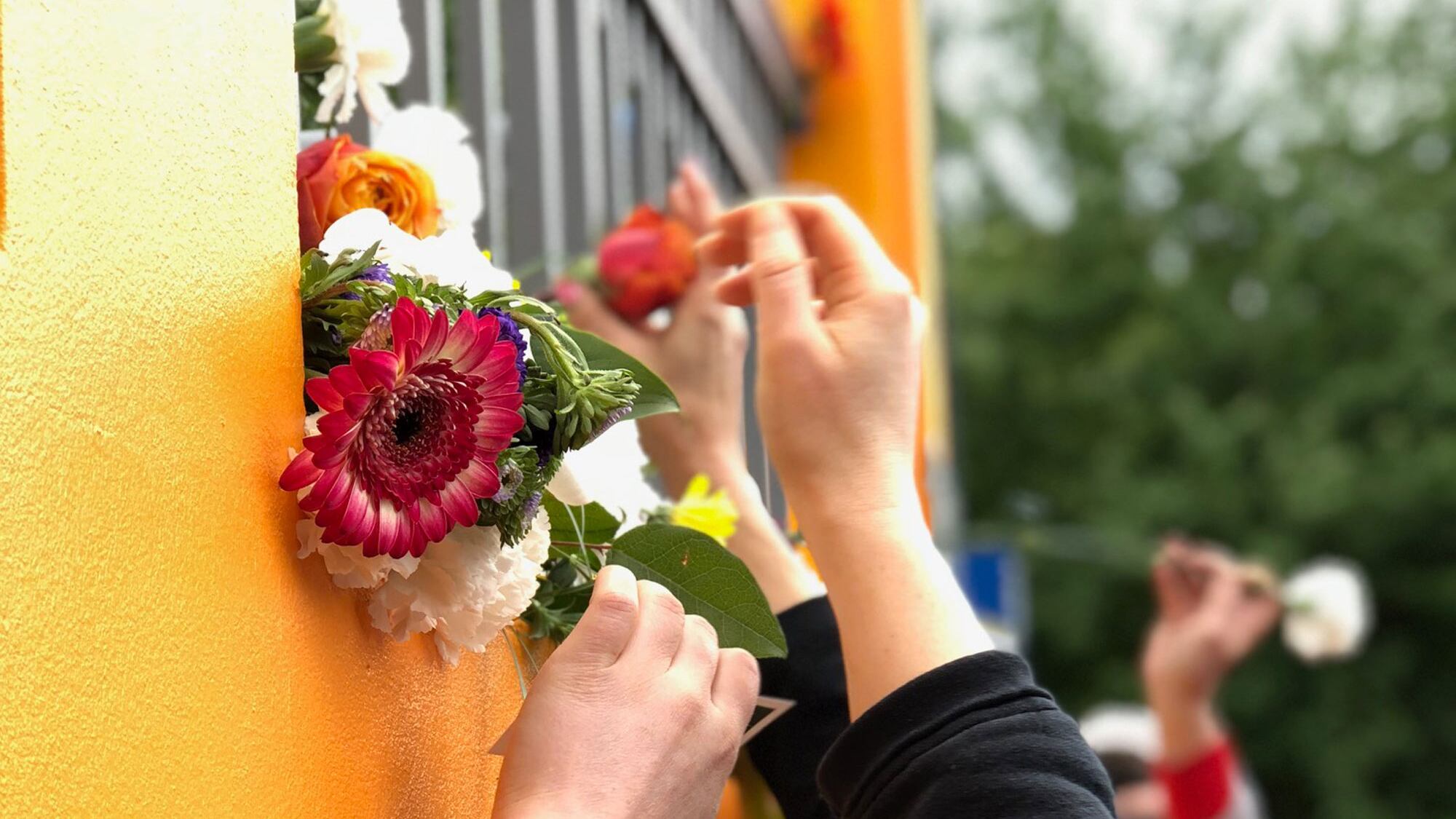Gathering at the foot of the freshly painted stairs and ramps leading to the Hollywood Transit Center MAX stop, hundreds of Portlanders paused Saturday evening to remember the men killed last May in a stabbing that blindsided and horrified this city.
The memorial took place exactly one year after the attack by Jeremy Christian that killed Taliesin Myrddin Namkai-Meche and Ricky Best and seriously wounded Micah Fletcher after they interrupted his racial tirade against two young women.
Members of Best's and Namkai-Meche's families attended the event. So did Dyjuana Hudson, the mother of one of the teenage girls targeted by Christian.
The dedication of a mural at the transit center marked the first time the city has come together in remembrance since the vigils held in the immediate aftermath of the attacks.
The event was organized to coincide with the exact moment of the attacks.
"We come together to commemorate the heroism of that fateful day, one year ago and the community we saw play out on the walls on the transit center and the days that followed," said Maura White of the the neighborhood organization Hollywood Boosters.

Wajdi Said of the Muslim Educational Trust spoke against the racism that appeared to motivate the attacks.
"Let's fight bigotry and racism and hate inside of each one of us, let us fight that racism that divides us against each other, my dear brothers and sisters," he said.
Ricky Best's priest, Father Rick Paperini of the Christ The King Catholic Church in Milwaukie, spoke on his relationship to Best and his family.
"I believe it was C.S. Lewis that once wrote, 'When we love somebody intensely, the sense of loss is equally intense.' When you love somebody intensely, as I know the Best family loved Rick, then the sense of loss is going to be incredibly difficult," Paperini said, "and yet the ironic thing is that we continue to love in spite of the pain loss just might bring."

The mural dedicated at today's ceremony was the result of months of deliberation, first prompted after an impromptu memorial grew rapidly and became the subject of calls for something more permanent. Ultimately, an advisory committee chose Sarah Farahat to lead the creation of the final design for the memorial dedicated today.
Farahat described the creative process behind the memorial as "both joyful and heavy."
"It's a lot of responsibility," said Farahat. She designed the mural as a cascade of colors leading up the ramp to the MAX station. "I was thinking about the passage of time, so this is supposed to be the end of the day transitioning into night, [and] the back of the mural will be a night sky."

A procession filed toward the mural to begin leaving flowers. Some had brought their own flowers, and some spoke to the family members who gathered near the base of the mural.
Among them was Portland Mayor Ted Wheeler, whose term began less than six months before the attack. He quietly placed a flower at the base of the mural.
"In the moment, it was nearly damned impossible," Wheeler told WW last night. "It was an event that shook this city to its core. It surfaced hatred that a lot of people knew existed in this community that maybe didn't want to believe existed in this community."
Wheeler says he finds strength in the actions of the three men who intervened on the train.
"People continue to be inspired by Ricky and Taliesin and Micah and they remember the strength of the young women who were subjected to so much vitriol and hate speech," he said. "Here you have the families today standing strong and I think that gives us all strength and encouragement. I'm leaving here feeling like a stronger, better, more understanding person."

Some 20 feet above where Wheeler stood, quotes from Taliesin Myrddin Namkai-Meche and Ricky Best are now painted onto the place where they died.
"I cannot stand by and do nothing," Best's quote reads.
"Tell everyone on the train I love them," reads Namkai-Meche's.
